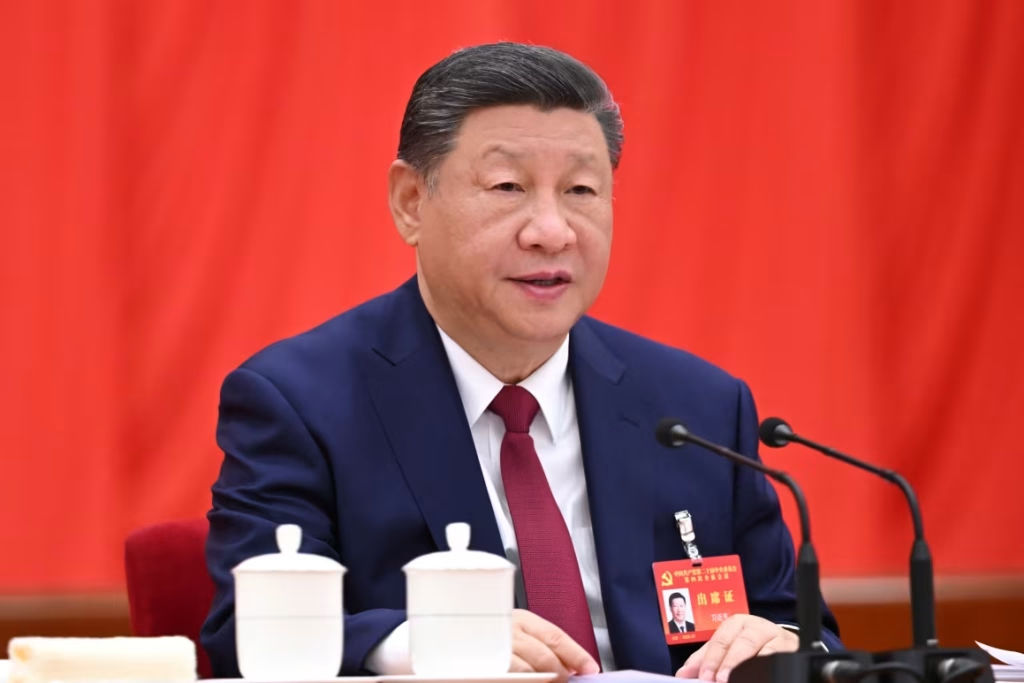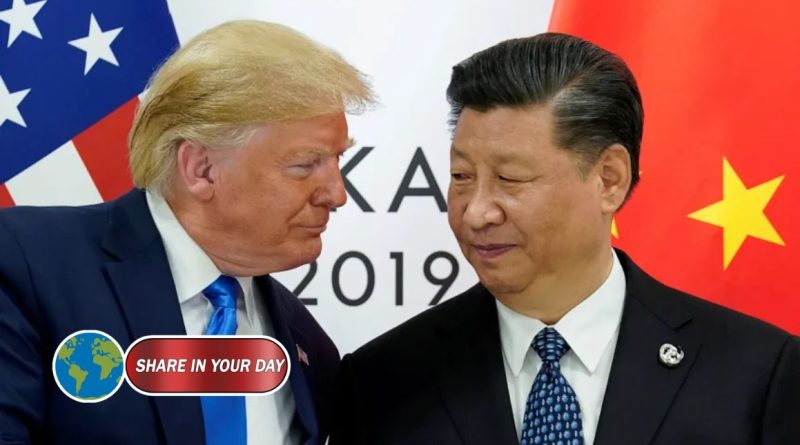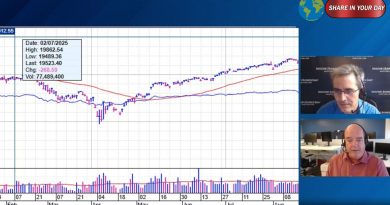Whatever the Outcome, the Xi-Trump Meeting is a Win for China
A Landmark Moment for China’s Global Standing
As President Donald Trump prepares for a key meeting with Chinese leader Xi Jinping this week, it marks a significant moment for Beijing. The meeting, expected to take place on the sidelines of an international summit in South Korea, will allow Xi to demonstrate China’s rising stature on the global stage—an aspiration Beijing has pursued for years.

While the ongoing trade war between the U.S. and China has posed challenges for Xi’s push toward economic growth and technological innovation, it has inadvertently provided China with a prominent platform to showcase its strength. In fact, as the rest of the world scrambled to negotiate with Trump over the global tariffs he imposed earlier this year, China has positioned itself as an economic powerhouse, able to weather the storm and strike back.
China Flexes Economic Muscle in the Trade War
The U.S. and China have long been engaged in a trade battle, with both sides imposing retaliatory tariffs. However, China’s response to U.S. actions has been swift and strategic. When the U.S. restricted China’s access to American technology and targeted its shipping industry, Beijing retaliated by announcing a dramatic expansion of export controls on critical rare earth minerals—materials essential to many high-tech industries.

This move rattled Washington and prompted Trump to threaten an additional 100% tariff on Chinese goods. Yet, despite these escalating tensions, both sides recently engaged in talks in Malaysia that resulted in a tentative truce, at least for the moment.
Now, as Xi and Trump meet in South Korea, they are expected to work out a framework to manage their increasingly complex economic relationship. However, the path to this meeting has been far from smooth, and the negotiations are likely to reflect the deepening geopolitical rivalry between the two superpowers.
Xi’s Calculated Approach to U.S. Pressure
For China, this summit is about more than just resolving tariffs; it is a chance to reshape the global narrative about its place in the world. In recent months, Beijing has shown that it is no longer willing to simply follow Washington’s lead. Instead, Xi’s government has emphasized that China will negotiate, but it will not be intimidated.
While the U.S. tariffs on Chinese goods—averaging over 50%—have put significant pressure on China’s economy, Beijing sees a broader opportunity to reduce its dependency on the U.S. market. China’s strategic dominance over the global rare earths supply chain and its push for greater technological self-sufficiency through initiatives like its five-year plan, which aims to drive innovation and reduce reliance on U.S. high-tech products, exemplify its long-term approach.
In fact, analysts in China believe that the trade war has revealed to Trump that China is not the same country it was eight years ago. “The U.S. is no longer the dominant power,” said Wang Yiwei, director of the Institute of International Affairs at Renmin University in Beijing. According to Wang, China is “fully prepared” for any challenges Trump may bring to the table in his second term.
The Growing Divide: U.S. and China’s Evolving Relationship
Despite the challenges posed by the trade war, Beijing is maintaining a level-headed approach. According to Wang Wen, the dean of the Chongyang Institute for Financial Studies, China remains “calm” in the face of U.S. pressures. While acknowledging the U.S. as a significant partner, Wang emphasized that China’s global priorities are shifting, and the U.S. is gradually losing its central role in China’s economic strategy.
From Beijing’s perspective, it’s clear that the current geopolitical landscape is one of competition, not cooperation. The U.S. has tried to halt China’s rise through tariffs, export controls, and political friction, but China has been proactive in finding ways to counteract these moves—whether by leveraging its dominance in rare earths or diversifying trade to reduce its reliance on the U.S.
The Xi-Trump Summit: A High-Stakes Diplomatic Moment
Xi’s priorities for the summit are clear: he will be aiming to reduce U.S. tariffs and ease export controls, especially those affecting China’s access to critical American technologies. In exchange, Beijing may consider deferring or easing its own export controls on rare earths, which it imposed as a countermeasure against U.S. sanctions.
Although both sides have given positive signals following recent trade talks in Malaysia, the outcome of the summit remains uncertain. There is always the risk that one misstep or a rogue comment could derail the delicate detente between the two leaders. Much, as is often the case with Trump’s diplomacy, may come down to the chemistry between the two men when they finally meet.
In the lead-up to the summit, Chinese officials have made it clear that they expect mutual respect between the two leaders. In a recent statement, China’s top diplomat Wang Yi noted that both Trump and Xi are “world-class leaders” who have engaged in long-term dialogue and share mutual respect. For Xi, ensuring that this meeting reflects that spirit of “equality, respect, and mutual benefit” will be crucial for moving the bilateral relationship forward.
Conclusion: A Win for China Regardless of the Outcome
No matter the immediate outcomes of the Xi-Trump meeting, Beijing is likely to emerge from the summit with significant gains. The mere fact that Xi will be sitting down with the U.S. president as an equal—at the same table, facing the same pressures—is a testament to China’s rising global influence.
Even if the leaders don’t reach a final agreement on trade, the meeting itself is a reminder that China is no longer a country that can be easily sidelined or coerced. As the U.S. and China continue to navigate their complex relationship, one thing is certain: China’s position on the world stage has fundamentally shifted, and Xi’s leadership will continue to shape the course of global politics in the years to come.




